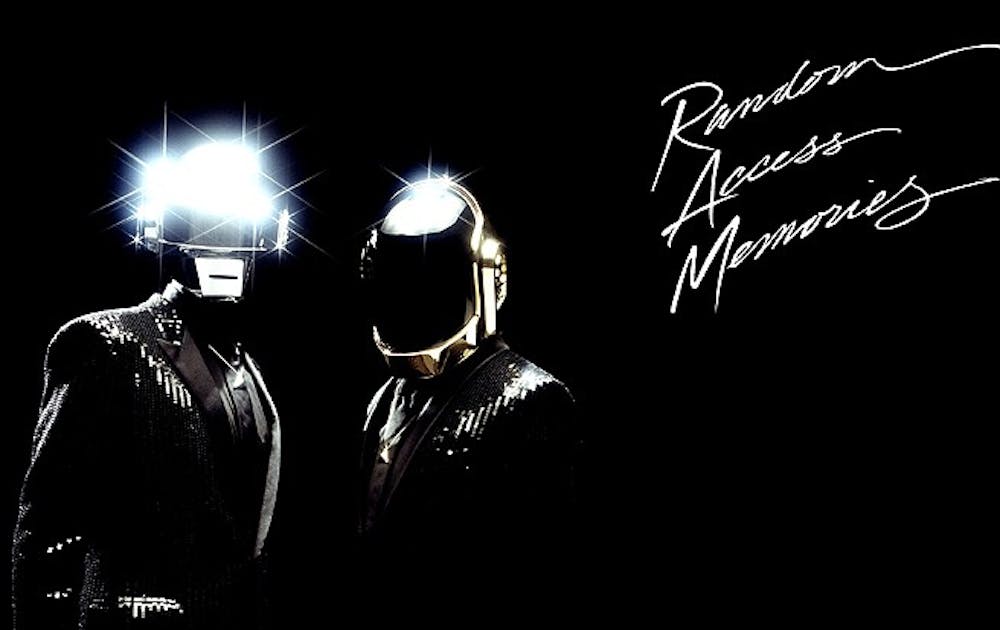It was a full ten years ago when Daft Punk was filling crowded dance clubs rather than wedding DJ playlists. The decade since has seen a blaze of color-by-numbers electronic dance anthems that extinguished much of the oxygen that Daft Punk’s first three studio albums produced. Daft Punk is not subtle on their opinion of the current antiseptic state of EDM; Random Access Memories opens with a marquee track ‘Give Life Back to Music.’ Indeed, any listener has likely been bombarded with noise about Daft Punk’s intentional use of entirely live or analog instrumentation. For a band that made its name hacking, sampling and patching digital sound into soul, their gimmick is undeniably bold.
Random Access Memories’s opening tracks place this instrumentation center stage—disco guitars and 70s era vocoders, not sampled horns or compressed vocals, drive the melodies of ‘Give Life Back to Music’ and ‘The Game of Love.’ The nine minute ‘Giorgio by Moroder,’ however, stands out even against the earnest, retro plying of the album’s opening. Bombastic strings, a vamped synth crescendo, and Moroder’s recorded interview combine to a sonic return to the 2001-era Daft Punk so heavily influenced by Moroder.
The track is one of the better ones on the album, and preludes the surprisingly high quality of collaborations in Random Access Memories. In the tracks featuring a notable co-producer, Daft Punk displays a remarkable willingness to channel their guest’s style. ‘Instant Crush,’ a track featuring Julian Casablancas, moves exactly like a Strokes’ single under a Daft influence. ‘Touch,’ the album’s center, unfurls like a 70s era anthem in the image of collaborator Paul Williams. Every orchestral break drips with the unironic sincerity of a boombox playing Peter Gabriel, making space for lyrics like, ‘If love is the answer, you’re home.’
The one-two of ‘Touch’ and the radio hook ‘Get Lucky’ comprise the climax of the album and, after it passes, Random Access Memories concludes with a dénouement of noticeably more experimental material. Lush, unconventional arrangements in ‘Motherboard’ trade the Daft Punk’s hallmark vamped synthesizer underpinnings for morphing, electro-jazz drum beats and reverb-drenched breaks. Panda Bear’s collaboration in ‘Doin’ It Right’ presents his voice front and center, over a devolved, Strawberry Jam percussion and stark synthesizer cover for a pop song with edge. ‘Contact’ exists as the only proper way to end the album—a grand six minutes of samples, vamping synthesizer, and unapologetically 80s drums. For an album that finds headroom in the opposite direction of Discovery and Human After All, the closing is an announcement of the distance that the duo has covered in four albums.
Random Access Memories is a cohesive force. Although the collaborations alone justify the album, Daft Punk’s earnestly emotional intentions pervade nearly every track on the album. Although some tracks like ‘Within’ and ‘Beyond’ remain as somewhat repetitive transition tracks, nearly all of the album functions as a unit to take the listener back, forward, and (maybe) to Daft Punk’s future.
Get The Chronicle straight to your inbox
Signup for our weekly newsletter. Cancel at any time.

